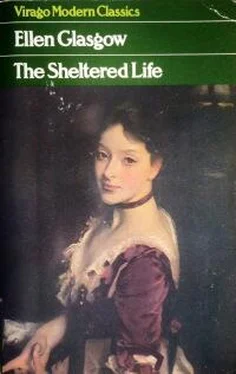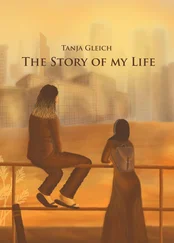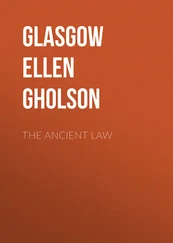Ellen Glasgow - The Sheltered Life
Здесь есть возможность читать онлайн «Ellen Glasgow - The Sheltered Life» весь текст электронной книги совершенно бесплатно (целиком полную версию без сокращений). В некоторых случаях можно слушать аудио, скачать через торрент в формате fb2 и присутствует краткое содержание. Жанр: Классическая проза, на английском языке. Описание произведения, (предисловие) а так же отзывы посетителей доступны на портале библиотеки ЛибКат.
- Название:The Sheltered Life
- Автор:
- Жанр:
- Год:неизвестен
- ISBN:нет данных
- Рейтинг книги:5 / 5. Голосов: 1
-
Избранное:Добавить в избранное
- Отзывы:
-
Ваша оценка:
- 100
- 1
- 2
- 3
- 4
- 5
The Sheltered Life: краткое содержание, описание и аннотация
Предлагаем к чтению аннотацию, описание, краткое содержание или предисловие (зависит от того, что написал сам автор книги «The Sheltered Life»). Если вы не нашли необходимую информацию о книге — напишите в комментариях, мы постараемся отыскать её.
The Sheltered Life — читать онлайн бесплатно полную книгу (весь текст) целиком
Ниже представлен текст книги, разбитый по страницам. Система сохранения места последней прочитанной страницы, позволяет с удобством читать онлайн бесплатно книгу «The Sheltered Life», без необходимости каждый раз заново искать на чём Вы остановились. Поставьте закладку, и сможете в любой момент перейти на страницу, на которой закончили чтение.
Интервал:
Закладка:
But here everything was unchanged. It might have been summer still, so little impression had the last two months, which were packed for her with adventure, made on the arid scene she had left. Only the long straight street, rising and sinking with the hills, had accumulated a thicker deposit of dust, and the leaves on the elms hung brittle and tarnished, with curled edges, from the motionless boughs.
"I had almost forgotten," she thought, starting slightly. Almost, but not quite. As the car slowed down in front of the Birdsongs' gate, the sunshine was suddenly troubled, and the small bronze leaves stirred, rustled, turned on the stems, and came quietly to rest again in the stillness. A transparent curtain at an upper window blew out and was sucked in, as if a door had opened and shut in the room. When she looked back, it seemed to Jenny Blair that the old quiver started to life in the nerves of her memory, while a door in her mind also opened and shut, and the anguish she had left in Washington Street rushed in and consumed her. How had she lived through the summer? How had she so nearly forgotten? When the car stopped, and she waited for her grandfather to step to the pavement, that one instant, with the troubled sunshine and the blown curtain, seemed to hesitate and enclose her before it sped on again into the past. Everything was alive and aching once more. Not only her heart, which was filled again with unsatisfied hunger, but the houses and the street and every person and object. Even Mamma and Grandfather and Aunt Etta were all more real than they had been when she was living on the surface of herself in the mountains.
"Well, it's good to be back." They had entered the house, and after kissing Isabella and the children, stood gazing, like wistful strangers, through the hall and under the awning on the porch, to the scarlet sage and purple asters in the garden. From an immeasurable distance (so far off that the voices were as timeless as the breaking of waves on a beach) Jenny Blair heard and yet did not hear that Mrs. Birdsong had not come home because her nerves were still shattered.
"I had hoped she would be well by autumn," Mrs. Archbald said in an anxious tone, and Isabella replied, "Nobody seems to know what is the matter with her. She won't have anybody but Doctor Bridges, and he is too much of a surgeon to be good for anything else."
"When is she coming home? There are doctors enough in Queenborough."
"Yes, but she refuses to have any one else. She likes Doctor Bridges because he keeps telling her nothing is wrong. George is going to see her on Saturday, and he will bring her home if she is able to come."
"Poor George," Mrs. Archbald sighed. "He has really been very good."
"Yes, he has been very good when you consider--" The rest of Aunt Isabella's sentence was lost to Jenny Blair as she turned away from the porch.
In her own room upstairs, with the door shut, she felt that a mood had waited there since July to recapture her. The flower pattern on the wall-paper, the cream-coloured furniture decorated with garlands, the mirror so like a silver-green pool, the chintz curtains, the blue-and-grey rugs, her favourite books in the bookcase, the china figures of a shepherd and a shepherdess on the mantelpiece,--all these objects were drowned in that savage loneliness as if it were an invisible sea. It was extraordinary, it was incredible, that she should so nearly have forgotten the pang of desire, that she should so nearly have fallen in love with somebody else.
Stopping before the mirror, she took off her hat and gazed at her reflection. Yes, she looked well; she was prettier; her lips were riper; her eyes were deeper and more golden. While she stared into the glass, it seemed to her that the shadows of some meaningless words rippled over the surface. How long had they trembled there, blown out and sucked in again when a door opened and shut? "Suppose I were never to see him again! Suppose I were never to see him again!" As if the words had released an inarticulate longing, she felt the old torment of restlessness spring out of the silence. She felt it racing in her veins; she felt it stinging her flesh, as the wind stings one after a dip into the sea; she felt it shudder and pause and shudder again in her heart. No, she couldn't bear it alone. She had never learned how to bear things alone. Pain that she did not understand, secret and mysterious pain, plunged into her like the beak of a hawk, swept her, helpless as a wren, out into the void. Just those empty words, so meaningless a few minutes ago (how could it be possible for her never to see him again?) awoke this sudden terror, this sense of being alone, lost, estranged, and forgotten.
But, even if she saw him, she might find that he had not remembered. She might feel again the vague hunger of that July evening, when the moonlight stealing into her mind had made her wish that she were dead. Millions of years before she was born, it must have lain somewhere, that hunger, waiting, wanting, as dumb as the earth or the rocks. Millions of years, and now it came to life and sprang out at her. All the waiting, the wanting, of millions of years! She was too young to bear all that weight, the weight of earth and rocks for millions of years. Yet a few careless words brought it back again. "It isn't my fault," she said aloud to the mirror. "I didn't ask to suffer like this. Nobody could possibly choose to suffer like this." Then, as suddenly as it had come, the dark mood flitted over her. While she slipped out of her clothes in the bathroom and scattered aromatic salts into the water, she thought proudly, "I am young and pretty. I am almost beautiful, and I am in love. Life is so wonderful. . . ."
Late that afternoon, when she had changed to a red Eton jacket over a white silk frock with short sleeves, she came slowly downstairs and glanced into the library at her grandfather, who had fallen asleep in his chair. Outside, on the back porch, Mamma and Aunt Isabella were still talking (she believed they would talk in an earthquake!), and their voices, even, placid, monotonous, buzzed on and on like the droning of bees in the flowerbeds. Moving softly, for fear they should stop her, she opened the front door and went out, shutting it lightly behind her. As she did not wish to be seen, she stole down the path to the gate with a furtive air, and walked very close to the black iron fences on her way to the Birdsongs' house.
Here the gate was wide open, and without lifting her hand, but carefully edging her white skirt away from the iron, she entered the small front yard, and passed round the side of the house to the overgrown garden. This was the way she had come long ago, on that afternoon when she had fallen and hurt her knee in Canal Street. What scraps and scraps of things, what loose odds and ends of life, had gathered in her memory. For years she had not thought of that afternoon, and now an inner light picked out a detail, an outline, a splash of colour, until the whole scene emerged into view. There was Mrs. Birdsong placing a bowl of flowers on the table, and yellow Harrison roses blooming over the fence, and the tame bullfrog, as solemn as a preacher, on the moss-grown log in the lily-pond.
But she had never seen the garden look so overgrown, so neglected. All Mrs. Birdsong had meant, the charm, the spirit, the blossoming wildness, could be measured by the blight that had fallen over the place. For three months, or nearly three months, she had been absent, and in all that time weeds had sprawled like drunken stragglers over the grass walks and flower-beds. A pile of bricks had collected in the hollow of a box-bush; a broken saucer and an empty tomato can lay in the middle of a border; an old broom with a broken handle was rotting away at the foot of the steps; the leaves on the untended shrubs were curled and dry, as if the edges had been eaten by caterpillars.
Читать дальшеИнтервал:
Закладка:
Похожие книги на «The Sheltered Life»
Представляем Вашему вниманию похожие книги на «The Sheltered Life» списком для выбора. Мы отобрали схожую по названию и смыслу литературу в надежде предоставить читателям больше вариантов отыскать новые, интересные, ещё непрочитанные произведения.
Обсуждение, отзывы о книге «The Sheltered Life» и просто собственные мнения читателей. Оставьте ваши комментарии, напишите, что Вы думаете о произведении, его смысле или главных героях. Укажите что конкретно понравилось, а что нет, и почему Вы так считаете.












